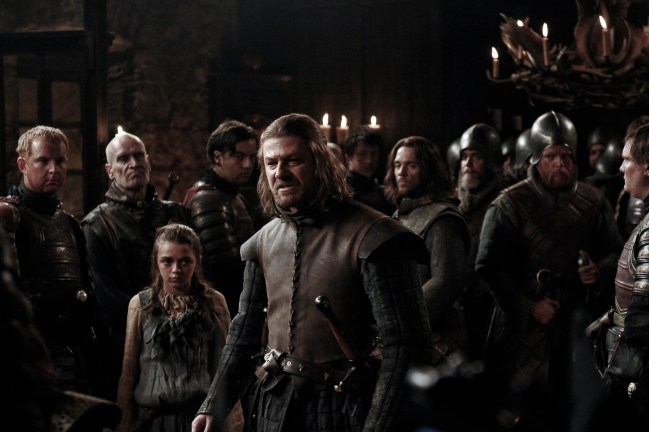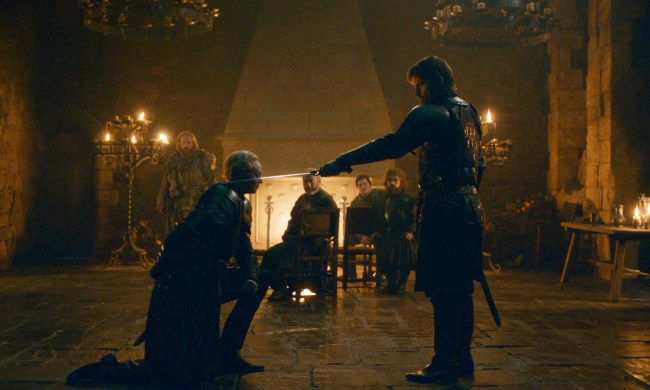 HBO is wasting no time in showering its loving affections on its recently debuted freshman drama, Game of Thrones. After a fairly solid debut along with positive critical and audience reviews, the network has given a second season of the show the go ahead.
HBO is wasting no time in showering its loving affections on its recently debuted freshman drama, Game of Thrones. After a fairly solid debut along with positive critical and audience reviews, the network has given a second season of the show the go ahead.
According to EW the first part of the ten-episode series garnered a 2.2 million share for the first airing, then 1.2 million for the next two re-airings which immediately followed the premiere, for a total of 4.4 million. The pilot episode was also aired three more times on Monday night, but those numbers—as well as the crucial DVR and On Demand viewing numbers—have not been released yet, which bodes well for the series; the debut aired at the same time that the NBA Playoffs were in full swing, which could have slanted the numbers towards later viewings.
While it isn’t quite as impressive as Boardwalk Empire’s record setting first airing which drew in 4.8 million, it did far outpace the premiere of True Blood—now one of HBO’s most popular programs, but one that debuted to a low 1.4 million viewers. Thrones also did well in the UK, where it set a Sky Atlantic record with 750,000, which beat out the previous record holder, Boardwalk Empire.
HBO would have liked the debut to be over 3 million, but the numbers are still solid and praise for the show could help to increase viewer numbers in the coming weeks. The fantasy epic, described as “The Sopranos in Middle Earth,” is expensive to make though–at least by HBO standards–which should alarm any that were fans of the cancelled-to-soon Rome. There are two important differences between Rome and Thrones though.
The first is that Throne has a built-in audience, where Rome did not. Even if the rest of the season is terrible (which it hopefully won’t be…), fans of the books will watch every episode regardless. That also might equate to good home media sales when the first season is collected and sold.
The second factor to consider is that Rome was co-financed by the BBC, which simply could not afford to keep up with the costs of the show. While Game of Thrones is expensive to produce—the first episode reportedly cost between $5-$10 million—the entire season cost between $50-$60 million, according to the Hollywood Reporter, which is nowhere near the $100-$110 million that Rome spent for the first season.
Due to all these factors, HBO has confirmed that Game of Thrones will be renewed for a second season to debut next year. That second season will be based on the second book in George R.R. Martin’s A Song of Ice and Fire series, titled A Clash of Kings (which raises the question of whether or not the series will change names). In the meantime, Game of Thrones airs on HBO every Sunday.


